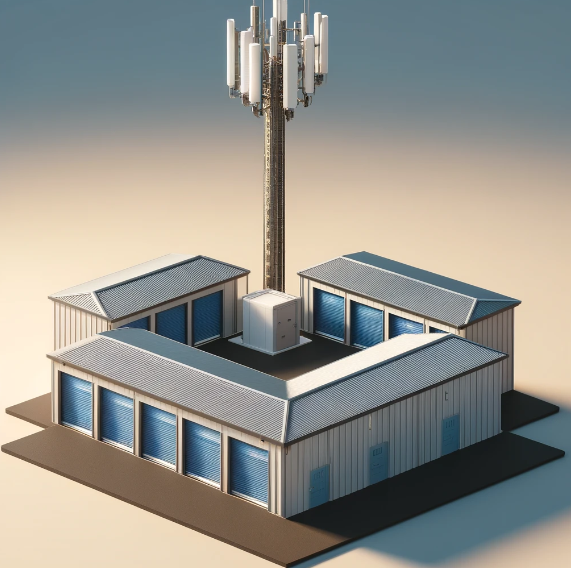Cell Tower Collocation Lease: Negotiating the Best Agreement

WHAT IS A TOWER COLLOCATION LEASE?
Cell tower companies own, manage, and operate cell towers. Some wireless carriers own their own towers, although they regularly lease space on cell towers that are owned by tower companies or wireless carriers. This is called collocation. In addition to collocating on the tower (and entering into a leasing agreement with the owner of the tower), the wireless carrier will also, in some cases, enter into a separate ground lease agreement with the owner of the property. This happens when more ground space is required than what the tower owner originally leased from the property owner. Collocation Leases allow the wireless carrier to install its transmission equipment (e.g., antennas, radios, and coaxial cables) on the cell tower and to install a base station at the base of the tower. The company collocating on the tower is referred to as the tenant or lessee. The tower owner is referred to as just that or the lessor.
Contact Us
WHAT IS A MASTER LEASE AGREEMENT?
Wireless carriers can lease multiple tower sites individually, signing separate collocations leases for each site – or they can enter into a “master lease agreement,” which defines the terms, and conditions upon which future individual leases will be agreed. The master lease might specify both the price and the lease terms or, in some cases, only the lease terms for future collocations. The price in the master lease agreement may be structured as a one-size-fits-all, whereby the collocating carrier pays one price regardless of the number of antennas/lines, or it may be structured with a fee per number of antennas and lines. The actual pricing will vary depending upon several factors, including:
- Size of the lease area required.
- Quantity and thickness of coaxial cables
- Weight and size of antennas and radios
- Height of antennas (rad center)
- Generator placement
- Availability of space
- Location
- Escalation increases
- Guaranteed term
The master lease agreement defines the terms and conditions to be used across all sites. For each separate location, a site lease agreement (SLA) is signed. The site lease defines site specific terms that are unique to that site. Thus, all master lease agreements (MLA) are accompanied by site lease agreements (SLAs).
STEEL IN THE AIR SERVICES FOR TOWER OWNERS REGARDING COLLOCATION LEASES
Steel in the Air is regularly retained by small tower owners and municipalities who own one or more towers, but not enough to where they have dedicated personnel to address collocation requests. Our clients use our services for the following purposes:
To Determine Fair Market Value Collocation Lease Rates for New or Existing Leases
Steel in the Air’s proprietary database can be used to determine appropriate collocation lease rates. We have assembled a sizeable database of tower collocation lease rates that have been paid by wireless carriers across the United States. We know what factors influence lease rates and which carriers are more likely to pay higher lease rates. We analyze each tower location specifically and determine what other towers or properties in the area might be suitable alternatives to the subject property.
If you have an existing collocation lease that is set to expire, we can advise you on how much it is worth going forward. We can also review the current collocation lease agreement and recommend best practices and terms/conditions that benefit you as the tower owner.
To Review Proposed Equipment Modifications
If you have received a proposal to add or modify equipment with an existing lease, we can review the proposal and your lease agreement and advise whether the equipment is allowed under the lease agreement or not. If not, we can also recommend the appropriate lease rate increase for the proposed modifications.
We also review the proposed construction drawings and advise on whether the proposed modification will impact other tenants, whether a structural analysis should be required, and what impact the modifications may have on future collocations on the same tower.
To Review Requests to Renegotiate a Tower Collocation Lease
Wireless carriers frequently use third party lease optimization firms to contact tower owners and attempt to renegotiate their leases. The lease optimization company contacts the tower owner and infers (but never outrightly states) that the carrier will terminate their lease with the tower owner if they don’t agree to lower the rent, lower the escalation, and allow the carrier to make any changes in the future on the tower at no additional rent. In most cases, the threat of termination is an empty one. If you receive one of these requests, please reach out to us and we will gladly review the proposal. Most of the time, we will tell you not to negotiate without charging you a dime. If we aren’t sure or think you might be at risk, we will provide a proposal to review the risk and advise on appropriate terms and conditions.
Advise on Collocation Lease Buyout Offers
Lease buyout companies often will contact tower owners to purchase the rights to the rent from the collocation leases on their tower. In most cases, we recommend not selling the rights to the collocation leases on a tower. By selling the leases, you will have sold the revenue on the tower, but still retain the obligation to maintain, insure, repair, and rebuild the tower. Typically, you would be better off selling the tower outright and distancing yourself from the liability and operation of the tower. If you want to discuss options related to selling the tower or the individual collocation leases, our initial discussion is free.
Call or Email Us to Discuss Further
If you have questions about an existing or proposed collocation lease, please reach out to us. Please note we are unable to help you market your tower for collocation leases. If you have any questions,
Click Here









